Home
Happy Future 2022
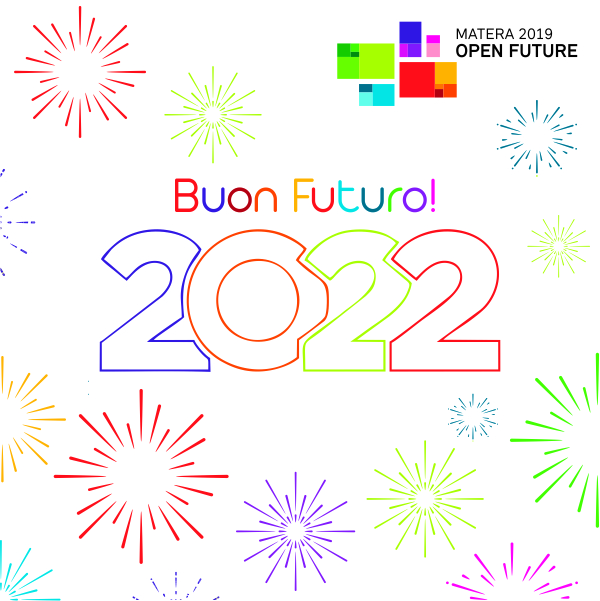
- Immagine condivisione Facebook:
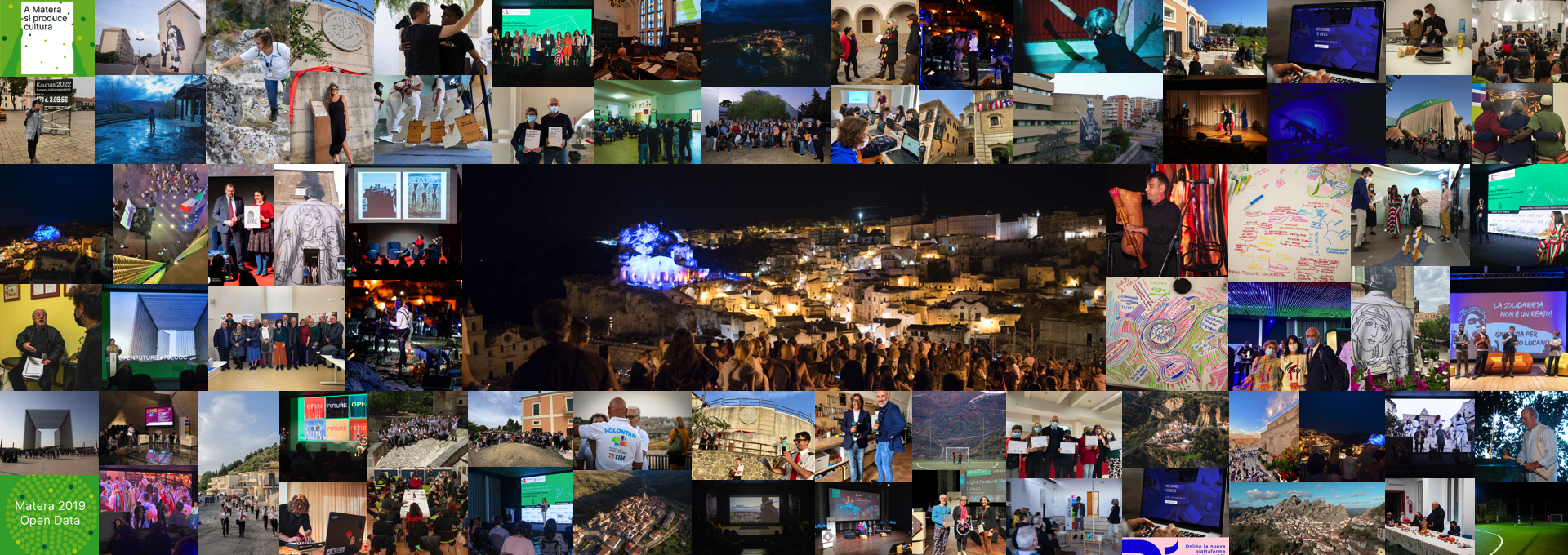
2021 has been the second year –after a great 2019 – that we have been forced to limit cultural activities and community get-togethers on account of the continuing sanitary emergency. Yet, in spite of this, we have succeeded in completing a few important projects as a legacy of the Matera European Capital of Culture 2019 experience.
First and foremost, the presentation of the results of the monitoring and assessment of the Matera 2019 experience which highlighted what was gained thanks to the ECoC title and the process it sparked as well as the changes it brought about from an economic, social and cultural point of view.
Together with the association “Open Culture 2019 Volunteers” which was set up to continue the experience of the Matera 2019 volunteers, we organized a professional development initiative called “Lezioni di volo” (Flying lessons) – a “toolbox” for learning how to “fly” in the world of cultural volunteerism and to build relationships not only in the local reality but also on a national and international scale.
During the Night of the Shooting Stars (St. Lawrence’s Night) in August, in order to raise awareness in the community as regards environmental issues such as light pollution, permanent and temporary citizens of Matera had the chance to watch the show “Matera sotto il cielo stellato. A rivedere le stelle” (“Matera under a starry sky. Gazing at the stars once again”). On that night, the Murgia plateau was studded with tiny lights and the music originating from an encounter of Italian and African artists spread from the Idris rock throughout the old town, I Sassi. An invitation to raise your eyes to the sky in the hope of preserving it from light pollution.
Indeed, it was to the safeguarding of and calling attention to the importance of dark skies that one of the two European projects that we completed this year was dedicated –the Interreg Europe “Night light” project. For five years, we played a key role, cooperating with institutions of seven European countries to improve regional public policies regarding these issues.
The second European project we brought to a close with a conference broadcast on an international web-radio set up especially for the occasion was the Erasmus+ project “DeuS – European Open Design School for Regional Sustainable Development”. Guiding this two-year partnership with other research institutes of nine European countries, we developed an innovative format aimed at the continuing professional development of operators in the cultural and creative business sectors, exporting the methodology of the Open Design School to other European countries. During those months, our experimental planning and production workshops were also at the service of our territory, such as the 3D printing course we ran for the students of Matera’s Minozzi-Festa Middle School. The Open Design School has also been selected as the official partner of the New European Bauhaus –an initiative championed by the President of the European Commission Ms Ursula von der Leyen – as a way of re-imagining our way of living together sustainably and inclusively by promoting a dialogue between art, culture, science and technology.
Among the groups we have cooperated with in town are the Matera Film Festival and the Matiff-Matera Art International Film Festival, leading up to the presentation of two films from Matera 2019 –“Il Nuovo Vangelo” ( “The New Gospel”) by Milo Rau in which the first black Jesus in the history of cinema leads a group of migrants fighting for dignity, and “Trenodia” about a public arts project with the participation of Mariangela and Vicinio Capossela which was filmed in Calabria, Campania and Basilicata in the year 2019.
Internationally, the main events we took part in were Expo 2020 Dubai where we cooperated with the Italian pavilion and Italian General Commissioner to organize the “European Capitals of Culture Day”, defined by EU Commissioner Paolo Glisenti as a “day of historic importance”. This was an opportunity to tell the story of the lively intelligence characterizing these cities as workshops where projects inspired by the New European Bauhaus are being experimented but also places where culture is a means for projects conceiving new connections between overcrowded areas and scarcely inhabited ones.
Throughout 2021, special attention has always been devoted to the hinterland areas, starting with the inauguration of Palestinian artist Emily Jacir’s works in the town of Pietrapertosa in the Lucanian Dolomites as part of the “Gardentopia” project and ending with the “In linea d’aria” festival involving five small towns in Basilicata that became artists’ residences and organized performances together with the local communities. At the end, a great final open-air event was held in Matera where participants exchanged views on how culture can generate new energy even in very remote areas.
During the course of the year, there have been several occasions –locally, nationally and internationally – where we were invited to recount our Matera 2019 experience as a reference point for all those who are eager to create for their realities new projects that have culture as a propellant.
We wish to thank all citizens, artists, institutions as well as the partners who have shared this year with us!
Happy Future!
In Linea d'Aria
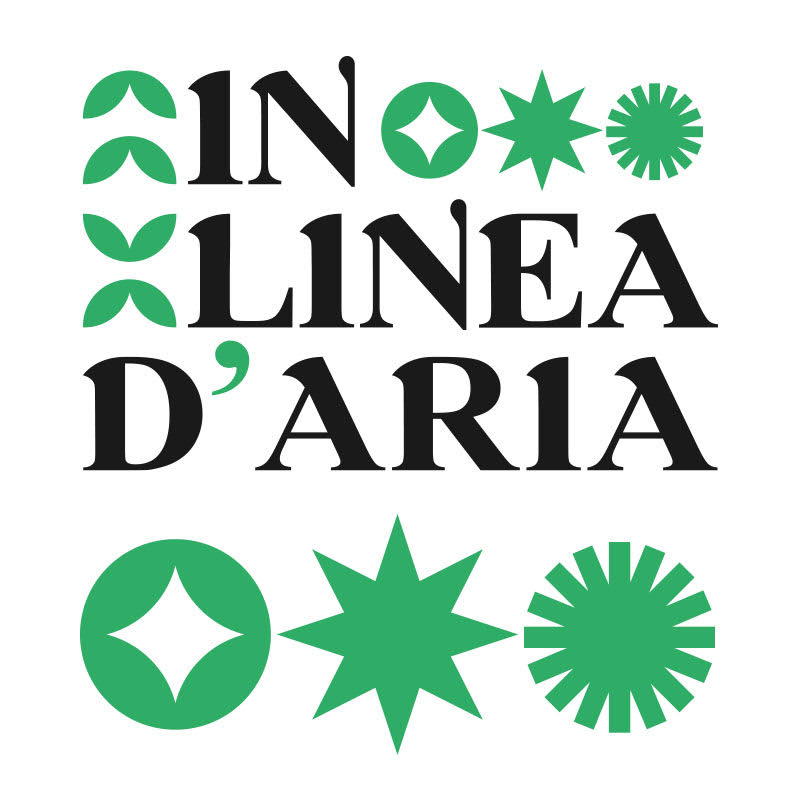
- Immagine condivisione Facebook:
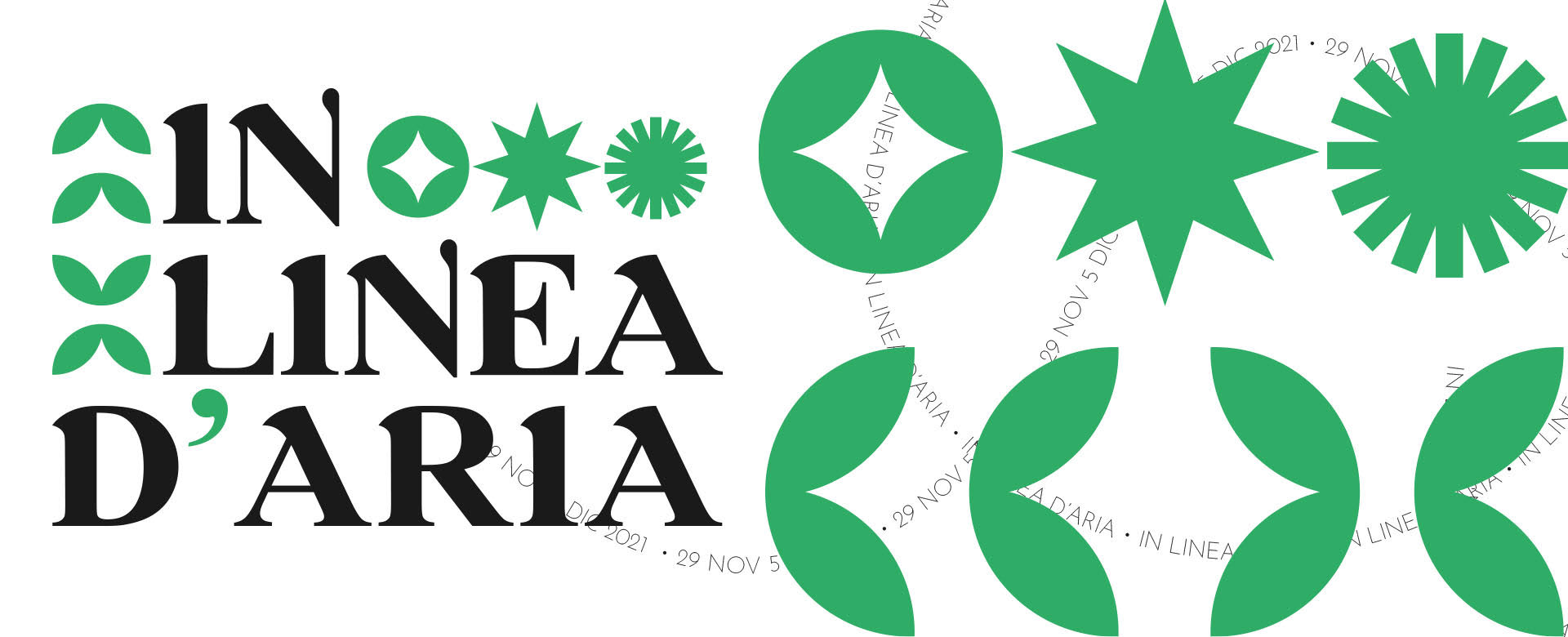
Dal 29 novembre al 5 dicembre, cinque comuni nel cuore delle aree interne della Basilicata sono i protagonisti di In Linea d’Aria, un progetto della Fondazione Matera Basilicata 2019, curato da Anna Gesualdi e Giovanni Trono di Teatringestazione, ospitato nello spazio digitale di Radio Leib e dal vivo nei comuni di Accettura, Aliano, Campomaggiore, Cirigliano, Pietrapertosa e Matera- La Martella, con il sostegno del Goethe Institut Napoli.
Con la sua formula sperimentale, il progetto abita simultaneamente spazi diffusi e di natura diversa, per mettere in connessione persone e luoghi apparentemente lontani: lo spazio in presenza, dal vivo; quello sonoro della radio, in diretta e in differita, intesa come spazio abitato ed esteso e non come semplice media; quello digitale attraverso un dispositivo - Gap - di audio-prossimità che permette l’ascolto da smartphone.
Per una settimana intera, le comunità di Accettura, Aliano, Campomaggiore, Cirigliano e Pietrapertosa, ospitano residenze artistiche con formazioni regionali, nazionali e tedesche, culminanti in una serie di performance dal vivo ispirate al tema "Natura/Cultura", elaborate dagli artisti per essere offerte ad un pubblico in presenza e a coloro che saranno in ascolto su Radio Leib, spazio radiofonico digitale che manterrà la connessione tra i paesi coinvolti.
Dal 29 novembre al 2 dicembre, gli artisti lavorano in spazi pubblici significativi per la comunità locale e individuati con la collaborazione dei "comitati di cura", ovvero gruppi di cittadini permanenti che si prendono cura degli artisti in residenza, quali cittadini temporanei.
Dal 3 al 5 dicembre vanno in scena le performance di Compagnia Teatrale Petra, O-Team, IAC, Lara Russo, Paola Bianchi, Radio Cashmere. Nella giornata del 4 dicembre viene inoltre inaugurato il giardino di comunità “Bibi Testalunga” progettato da Mimì Coviello e Lucrezia Di Dio di meson ro studio nell’ambito del progetto di Matera 2019 “Gardentopia”.
All’antropologa e giornalista Patrizia Giancotti è affidata la tessitura dei dialoghi che animeranno l’Agorà finale il 5 dicembre: una tavola rotonda aperta, dinamica, un luogo di condivisione dei progetti culturali di Matera 2019 e di altre realtà nelle aree interne, nonchè un'occasione per misurare mancanze e lanciare proposte alla luce delle voci invitate, tra artisti, curatori, policy-maker, ricercatori, operatori culturali, cittadini delle aree remote. La giornata si chiuderà nel quartiere La Martella, con il dj set e live painting di DJ Flower e Papa Massi, per festeggiare tutti insieme la nuova piazza del quartiere olivettiano recentemente riqualificata dal Comune di Matera.
Grazie alla conduzione di Giovanni Passariello e Silvio Impegnoso sarà inoltre possibile seguire tutta la programmazione dedicata a In Linea d’Aria su Radio Leib, uno spazio che accoglie proposte di radiofonia sperimentale e di comunità.
Il programma radiofonico, i podcast e tutte le informazioni di approfondimento sono disponibili su inlineadaria.net
![]() Scarica qui il programma di In Linea d'Aria
Scarica qui il programma di In Linea d'Aria
Il podcast del Festival

Agorà - 5 dicembre 2021 - Festival In Linea d'Aria
a cura di Patrizia Giancotti
Nell'ambito del Festival In Linea D'Aria 2021. All’antropologa, giornalista Patrizia Giancotti è stata affidata la tessitura dei dialoghi che animano l’Agorà: una tavola rotonda aperta, dinamica, un luogo di condivisione critica dell’esperienza in corso e di altri progetti nelle aree interne, e insieme un’occasione per misurare mancanze e lanciare proposte alla luce delle voci invitate. Ponendo il fuoco sulle aree remote, sull’isolamento dei paesi interni tra limiti e risorse, sulla necessità di immaginare nuove strategie di accessibilità culturale e ulteriori forme di vicinanza.
Video racconto / residenze artistiche e spettacoli
L'Agorà: un banchetto del pensiero
The European Capitals of Culture at the Italian Pavilion of Expo 2020 Dubai
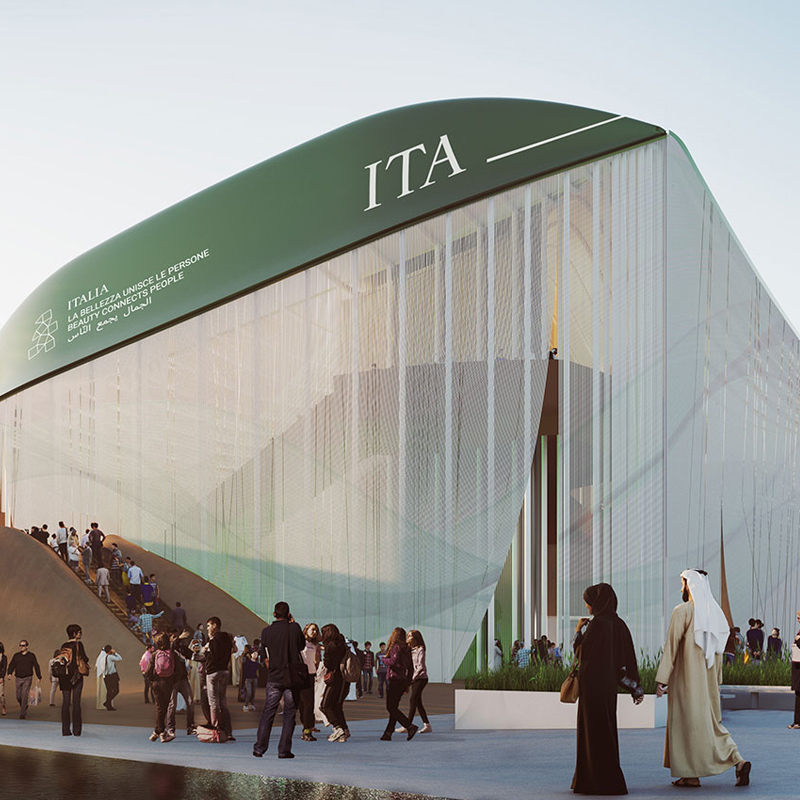
- Immagine condivisione Facebook:
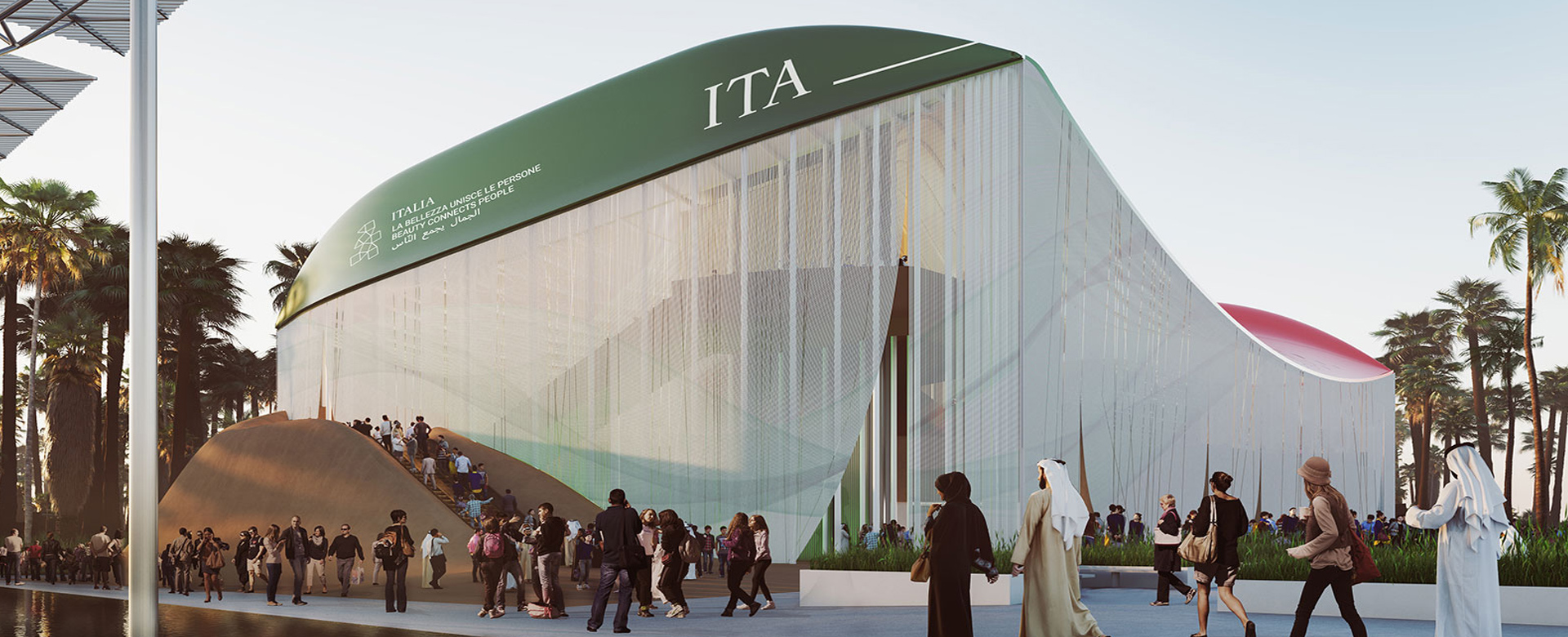
The European Capitals of Culture Day at the Universal Exhibition 2020 Dubai is the event that Matera 2019 is organizing on October 30, 2021 in the Italian Pavilion at the Expo 2020 Dubai, in partnership with the Commissioner General of Italy and under the patronage of EU Commission.
The initiative is the result of the Memorandum of understanding signed in October 2018 between the Foundation and the Commissariat, which envisaged the involvement of the network of European Capitals of Culture, headed by Matera, as a lever for strengthening the dialogue and cooperation between Europe and the vast region of Arab countries.
The ‘Day’ on 30 October 2021 highlights the most significant cultural experiences of the European Capitals of Culture and their huge contribution to the themes that the Dubai World Expo is promoting: building bridges, leaving no one behind, living in an equilibrium.
This day in the context of the most important event of the year acquires a special value during this prolonged period that has been marked by the pandemic and the compulsory cancellation of so many major live events. Not only by shining a spotlight on the European Capitals of Culture in the months when for the first time since 1985 there are no ECoCs, but also by creating a connection between the closing ceremonies of Galway and Rijeka in April 2021 and the opening ceremonies of Esch, Kaunas and Novi Sad in 2022. The event brings to the fore the network of European Capitals of Culture that represent a huge and varied potential of experiences and practices of the transformative and regenerative impact of culture on the cities and their communities.
The program - available on the Italian Pavilion website - includes four events:
- the International Forum The European Capitals of Culture and the New European Bauhaus: how to build sustainable, inclusive and beautiful places
(info event)
- the International Forum Urban/Rural: designing through culture new connections between overcrowded and sparsely populated areas (info event)
- The ECoC game, an interactive experience designed by the Open Design School aimed at taking visitors on an imaginary journey through the history of the European Capitals of Culture (info event)
- the performance Open Sound Dubai Session - one of the original co-productions of Matera 2019 realized with Multietnica association - a bridge between the production of contemporary electronic music and sound practices related to the most representative rituals of Lucanian tradition. The performance involves Italian and Arab musicians and producers, celebrating the encounter of different and similar cultures (info event)
Eight European Capitals of Culture participate in the discussions around the themes of the two forums: Esch 2022 (Luxembourg), Novi Sad 2022 (Serbia), Kaunas 2022 (Lithuania), Veszprém-Balaton 2023 (Hungary), Eleusis 2023 (Greece), Nova Gorica/Gorizia 2025 (Slovenia), Oulu 2026 (Finland), and Matera 2019. Major guests at the forum on European Capitals of Culture and New European Bauhaus include architect Carlo Ratti, co-designer of the Italian Pavilion at Expo, and Barbara Gessler, European Commission - Head of Unit “Creative Europe and ECoC programme” (remote connection).
We wanted to organize this initiative together with the Italian Pavilion and the network of European Capitals of Culture to relaunch this network and to highlight the resilience and ability to reinvent a major event by overcoming the unforeseen challenges posed by the pandemic.
We are excited and proud to represent Matera and the Basilicata Region at the Dubai Universal Exhibition!
In Ungheria la chiusura del progetto europeo Night Light
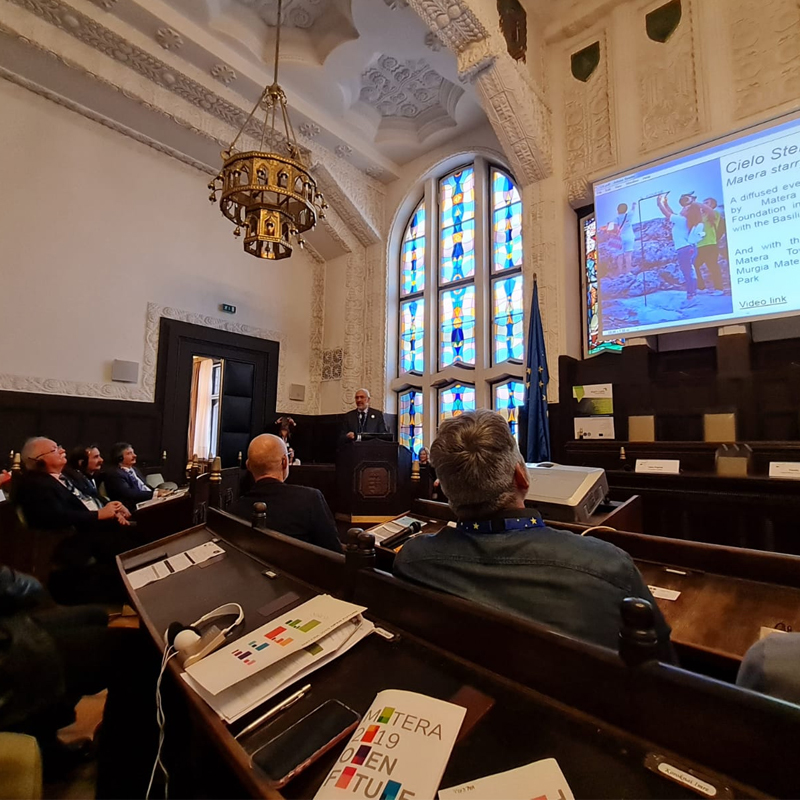
- Immagine condivisione Facebook:

Si è svolta nei giorni scorsi a Debrecen, in Ungheria, la conferenza internazionale che ha chiuso la cooperazione quinquennale del progetto Interreg Europe “Night Light” dedicato alla riduzione dell'inquinamento luminoso e la protezione del cielo buio, coinvolgendo 9 istituzioni di 7 paesi europei, tra cui la Fondazione Matera Basilicata 2019 e la Regione Basilicata per l’Italia.
Nel corso della conferenza, organizzata dal governo della contea di Hajdú-Bihar, è stata fornita una panoramica delle attività tematiche delle regioni partner e dei risultati del lavoro congiunto, formulando altresì le sfide per i prossimi anni, a partire dalla necessità di continuare a lavorare insieme per rafforzare la consapevolezza e responsabilità dei cittadini su un uso più sostenibile delle risorse naturali disponibili.
Proprio su questi temi è stato incentrato l’intervento del team della Fondazione Matera Basilicata 2019 che nel corso dell’incontro ha illustrato le progettualità messe in campo nel percorso di Matera capitale europea della cultura 2019, a partire dal cluster del dossier di candidatura “Dark skies”, per sensibilizzare le comunità e stimolare l’attivazione di policy regionali. Fra i progetti di Matera Basilicata 2019 dedicati alla valorizzazione della risorsa cielo notturno anche in chiave turistica, ci sono le tre edizioni di “Matera cielo stellato”, iniziativa di grande impatto per il pubblico, attraverso cui si è spenta la pubblica illuminazione della città, trasformata in un cielo stellato grazie alla presenza di fiaccole nei Sassi (edizione 2013, in fase di candidatura, ed edizione 2019, durante la cerimonia inaugurale) e sulla Murgia (edizione 2021, proposta in occasione della notte di San Lorenzo). A ciò si aggiunge il progetto “Social Light”, che nel 2019 ha visto protagonisti oltre 6.000 cittadini nei laboratori di realizzazione delle “bag-light”, le borse luminose ad energia solare, utilizzate per illuminare Matera in occasione della Cerimonia inaugurale del 19 gennaio.
Attraverso il progetto “Night Light” tutti i partner di progetto hanno lavorato ad una maggiore sensibilizzazione della società civile al problema dell'inquinamento luminoso, anche attraverso incontri ed eventi che hanno stimolato il pubblico a recuperare un migliore rapporto con il cielo stellato. Tutto ciò ha determinato una riflessione di tipo politico e amministrativo sull'uso eccessivo dell’illuminazione, attivando un lavoro su proposte di legge dirette a migliorare la qualità delle luci nella nostra regione, per arrivare ad un minore spreco energetico ed economico. Grazie al progetto si sono inoltre aperte in Basilicata nuove prospettive per il futuro, sia sul filone dell’astroturismo, che consentirebbe di mettere ulteriormente a valore il patrimonio naturalistico della regione, sia sullo sviluppo e l’applicazione di smart technologies per la riduzione dell’inquinamento luminoso e ambientale.





